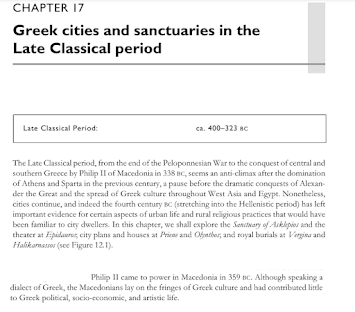“Philip II came to power in Macedonia in 359 BC. Althought speaking a dialect of Greek, the Macedonians lay on the fringes of Greek culture and had contributed little to Greek political, socio-economic and artistic life.”
Charles Gates,Ancient Cities:The Archaeology of Urban Life in the Ancient Near East and Egypt, Greece, and Rome,page 269
“With Alexander’s conquests, West Asia and Egypt were brought into the fold of Greek culture. The newly formed Greek kingdoms of the Hellenistic period would be much influenced, however, by the Near Eastern and Egyptian cultures they were now controlling. ”
Charles
Gates,Ancient Cities:The Archaeology of Urban Life in the Ancient Near East and
Egypt, Greece, and Rome,page 270
Bilkent University:Charles Gates received his Ph.D. in Classical Archaeology from the University of Pennsylvania (1979) and taught at the University of North Carolina at Chapel Hill before joining the faculty at Bilkent in 1990.
His teaching and research interests include Greek archaeology; Cilicia, Cyprus, and the Levant in the first millennium BC; and Byzantine art and archaeology.
He is the author of Ancient Cities: The Archaeology of Urban Life in the Ancient Near East and Egypt, Greece, and Rome, 2nd edn (London & New York: Routledge, 2011).
A member of the Kinet Höyük excavation project since 1993, he works primarily on the site's Iron Age and Persian and Hellenistic levels.


















